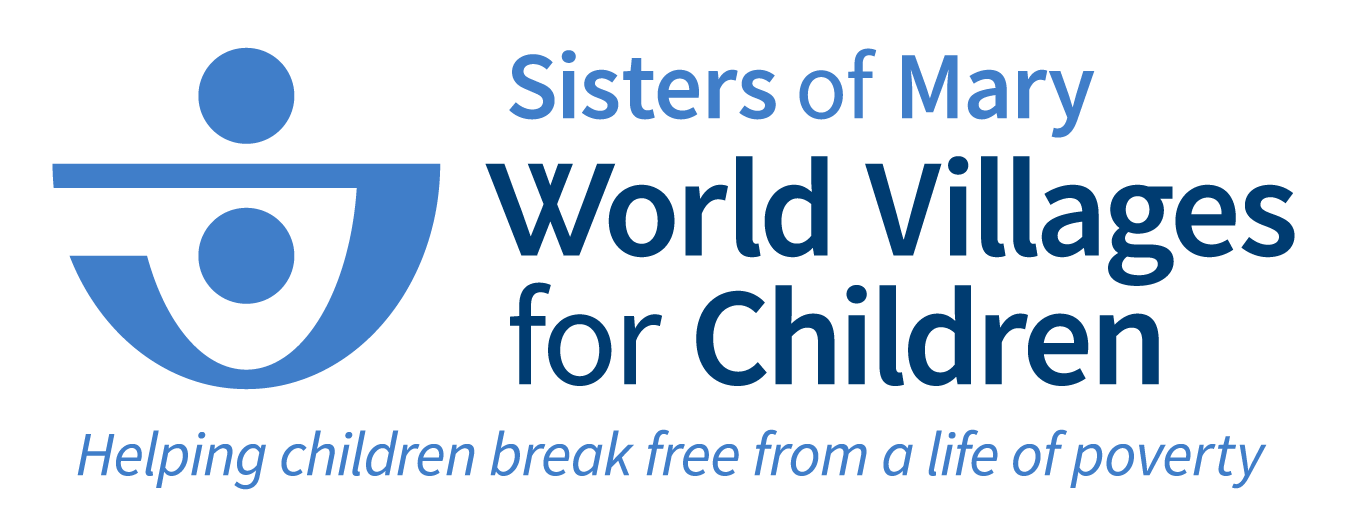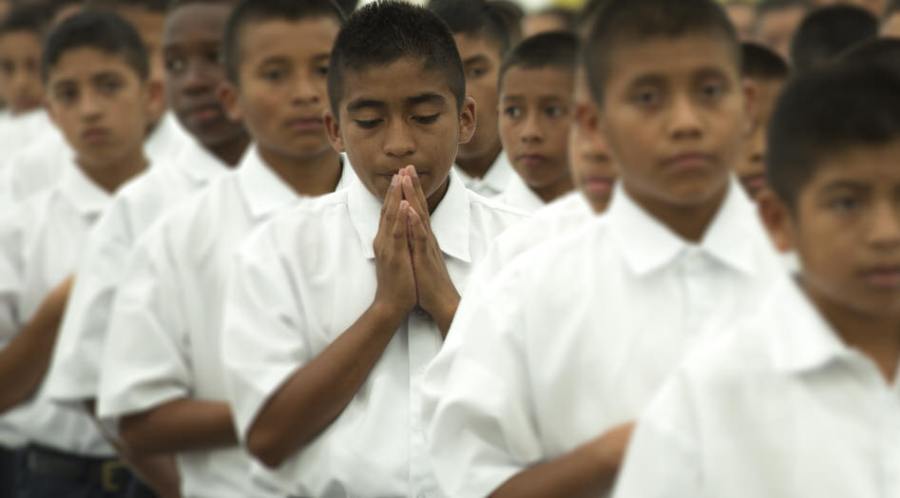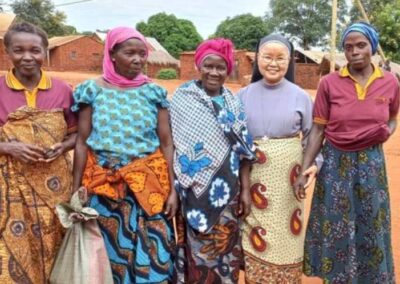Intangibles of Transformation
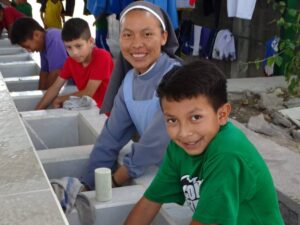
Recently I was talking with a graduate of the Sisters of Mary school in Mexico. I asked him, “What is the most significant thing the Sisters taught you?”
His response surprised me, “To clean.”
He’s been successful in life— following graduation from the Sisters of Mary school, he went on to earn a scholarship and a college degree, later earning an MBA, traveling the world and working a stable job in financial administration, all while helping to support his parents and siblings. Why then was “cleaning” the most important thing he learned from the Sisters?
As he told me, growing up in Mexico, “machismo” is one of the most ingrained values in young men. Whatever job he had or school he went to, the thing he wanted most in life was to be manly, self-reliant, proud and powerful. The Sisters taught him something different.
“After every meal with the Sisters, we had to wash the dishes, mop the floors, and scrub the tables. When I went home, I would help my mom do the same thing. My father couldn’t believe it.”
He told me before that point his father wasn’t always a part of the family. He was an alcoholic and would disappear for days and weeks on end. When his father saw him helping his mother, it brought up a lot of questions. It opened up conversations. Eventually, these conversations helped his father limit his drinking, come back to the faith, and spend more time with the family.
Comprehensive Education
 The lived values of the Sisters and the love they impart throughout the educational process is what makes the charitable programs of the Sisters of Mary so unique. From computers to cleaning, vocational training to virtue – the Sisters know that to help children break free from poverty takes more than money, more than academic knowledge, and more than good intentions. It takes demonstrating self-sacrifice and being a constant example. It takes faith, hope, and love.
The lived values of the Sisters and the love they impart throughout the educational process is what makes the charitable programs of the Sisters of Mary so unique. From computers to cleaning, vocational training to virtue – the Sisters know that to help children break free from poverty takes more than money, more than academic knowledge, and more than good intentions. It takes demonstrating self-sacrifice and being a constant example. It takes faith, hope, and love.
Leading with faith is not only a spiritual practice of the religious community, but a practical advantage as well…
According to a Yale study conducted in the Philippines, religious teachings may give participants more tools to overcome hardship. The study demonstrated how individuals going through a poverty alleviation program with a religious component fared better economically, than those who went through the same program without a religious component.
“Perhaps,” says Prof. James Choi, “they think, ‘I can pull through this because God is watching over me, and he has a plan for me[1].’”
Multiple studies have similar findings – that faith helps to counteract the negative effects of child poverty [2].
Graduates of the Sisters of Mary programs consistently report similar lived experiences. One graduate from the Philippines wrote to us recently to describe the difference the Sisters of Mary made in her life:
“What impacted me the most as I attended school at SOM were:
- Poverty is never a hindrance for success.
- Prayer (faith and trust in God) + determination (own action) = success
- Don’t be afraid to fail once, twice or thrice, because God will never abandon us”
Motivating Factor
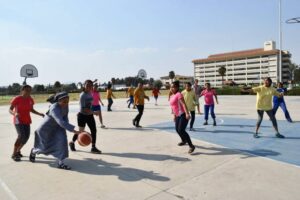 Beyond the clear benefit that faith plays in the lives of those trying to escape destitution, it also powerfully motivates the actions of those of us practicing charity to the poor.
Beyond the clear benefit that faith plays in the lives of those trying to escape destitution, it also powerfully motivates the actions of those of us practicing charity to the poor.
“People who profess a religious belief are significantly more likely to give to charity than non-believers [3].” This is not only true of giving to religious causes. People who are religiously affiliated are more likely to make a charitable donation of any kind, whether to a religious congregation or to another type of charitable organization.
Faith and poverty relief are intimately linked.
As St. James writes, “If a brother or sister is ill-clad and in lack of daily food, and one of you says to them, “Go in peace, be warmed and filled,” without giving them the things needed for the body, what does it profit?” (Jm 2:15-16).
Our faith is a gift from God and rightly ordered, should inspire meaningful and transformational charity. With faith and charity, transformation is not only possible, but probable in the lives of the recipients and the joyful givers – even if that transformation is just teaching a boy how to clean.
- Bryan, Gharad. Choi, Jame J. Karlan, Dean. “Randomizing Religion: the Impact of Protestant Evangelism on Economic Outcomes.” The Quarterly Journal of Economics. Volume 136. Issue ., February 2021. Pages 293–380. https://doi.org/10.1093/qje/qjaa023
- Haddad, Duke. 2018. “Does Religion Influence Philanthropy?” Available at: https://www.nonprofitpro.com/post/religion-influence-philanthropy/#:~:text=Religious%20people%20are%20more%20generous,to%20charity%20than%20non%2Dbelievers.
- Dehejia, Rajeev. DeLeire, Thomas. Luttmer, Erzo F.P., Mitchell, Josh. 2009. “The Role of Religious and Social Organizations in the Lives of Disadvantaged Youth.” The Problems of Disadvantaged Youth: An Economic Perspective, Gruber.
